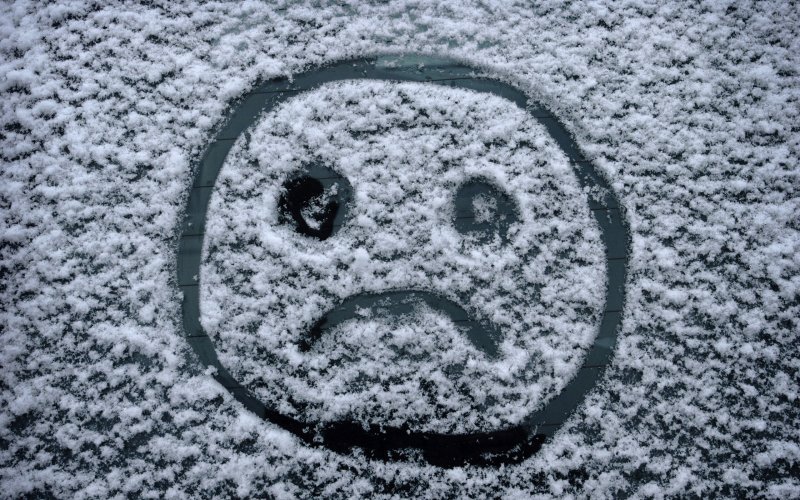
While humans are immeasurably more complex than the robots and computers we build, we do essentially function with a biological “clock” or “computer”. We call it our circadian rhythm. The human body would seem to run on a set series of events occurring within us during different times of the day. Certain chemicals in us build up to cause reactions that induce tiredness, joy, anxiety, and even influence how we dream. Even more interesting is how our bodies change not only during a 24-hour period, but also how we change over seasons. This article won’t describe all the chemical events that are happening but rather try to explain in simpler terms how we change over the summer and winter months and how this might have a significant negative affect on some people’s mental health.
Some people can suffer from Seasonal Affective Disorder (SAD), which is also commonly called Seasonal Depression. This is when the onset of a new season (more commonly winter) causes a significant negative change in a person’s mental health. Only during that time will these individuals feel depressive symptoms which then disappear in accordance to the summer returning. It is also important to acknowledge that this article is only one perspective and aims to help those who might be experiencing depressive symptoms during their study period at Trent as winter approaches.
Firstly, there are two important neurotransmitters that we need to understand when talking about SAD: melatonin and serotonin. Melatonin is the neurotransmitter that makes you feel sleepy and is produced in the absence of light, like when we go to bed. As well, serotonin is the main neurotransmitter that is believed to regulate mood and help invoke happiness. These two neurotransmitters have a complicated relationship with each other. During the winter, the days become shorter and people with SAD have trouble adjusting their circadian rhythm to the shorter days of winter. The shorter days mean less light is available for them to absorb, and melatonin levels become imbalanced, resulting usually in decreased wakefulness and energy. Furthermore, serotonin can become melatonin, however not vice versa. Therefore, as melatonin levels are increasing for longer periods (due to less light during the days), and serotonin is being converted into melatonin, there is less serotonin for the brain.
This imbalance is believed to be responsible for the lack of energy and happiness in SAD. Usually, people can adjust to this change in the length of day and not experience any inhibition. However, those that have SAD have a genetic predisposition making it harder for them to adjust and it can cause a variety of negative feelings, loss of interest with activities or school, appetite changes and sleep changes. It’s as if our clocks have been messed up, and that can mess with our minds.
A Trent student named Kristen spoke about her experience with having SAD. She explained how looking out upon a grey, dead landscape only worsened the feelings that SAD was already causing her. She described it as “feeling like a different person”. Based on the physical changes that were described above, it is easier to see how feelings of sadness and a loss of interest are common in SAD. However, Kristen also shared some positive notes that she uses to help boost her mental health. Things like exchanging small gifts like tea or coffee with some friends. Also, spending time with some companions who enjoy the winter, or even speaking with people feeling the same way were found to help. Kristen also expressed the importance of keeping your mental health a top priority.
Things such as volunteering and helping others are a good way to stay connected, or even taking up a hobby such as knitting or painting can help to focus energy to be more positive. There is also evidence that bright-light exposure can help to re-balance melatonin, which can be obtained artificially or by going on walk on a bright day. Sometimes the winter can bring about many negative feelings, but eating properly, staying active doing things you like, maintaining a consistent sleep schedule and exposing yourself to the outdoors can all help to mediate those feelings. However, sometimes your mental health needs some professional boosts too.
Trent University has a counselling center, that I have personally used, which can be accessed at https://www.trentu.ca/wellness/counselling. As well, speaking with your doctor about your symptoms may lead them to suggest a pharmaceutical treatment for you. There are also help lines which you can call for yourself or for a friend such as Good2Talk (1-866-925-5454) that are available 24/7, 365 days of the year. Trent University also has a strong mental health group on campus called Active Minds, which encourages the
student body to actively participate in advocating their mental health experiences. As a community, it is important that we at Trent share our knowledge and experience to help each other. Everyone is experiencing changes every day. It is okay to not be okay.
